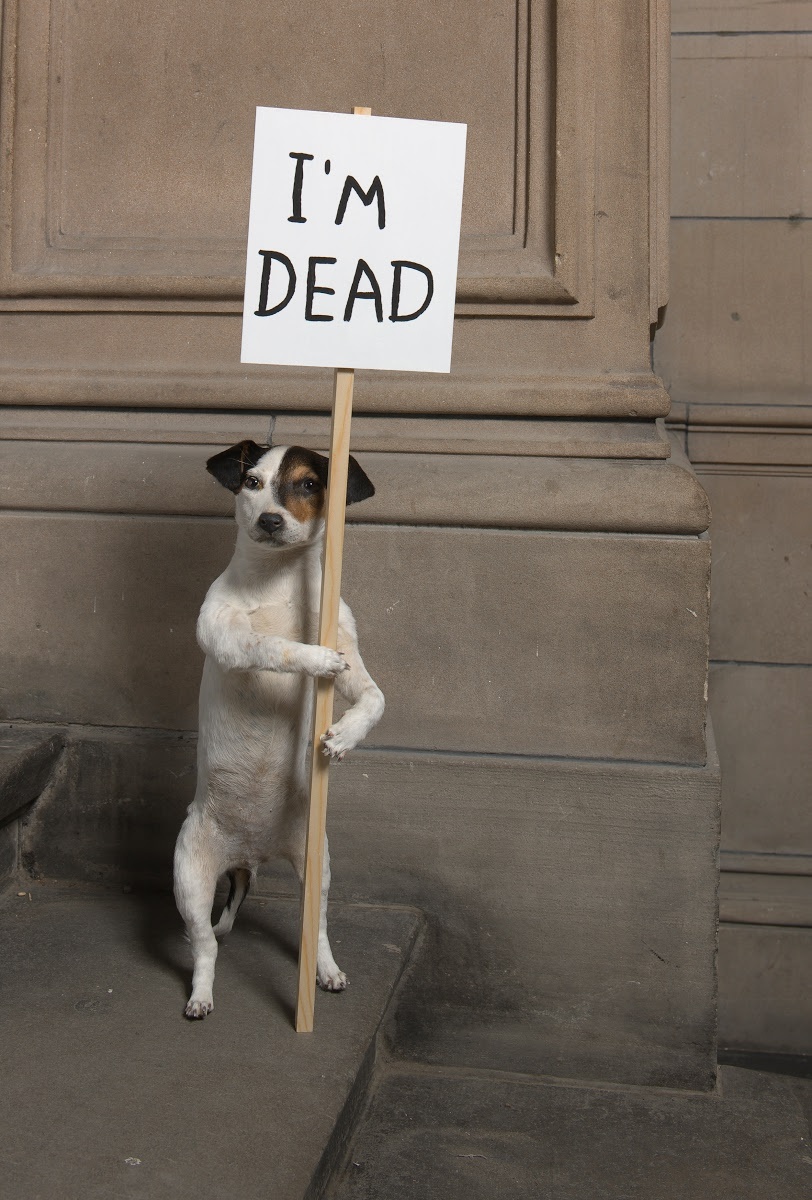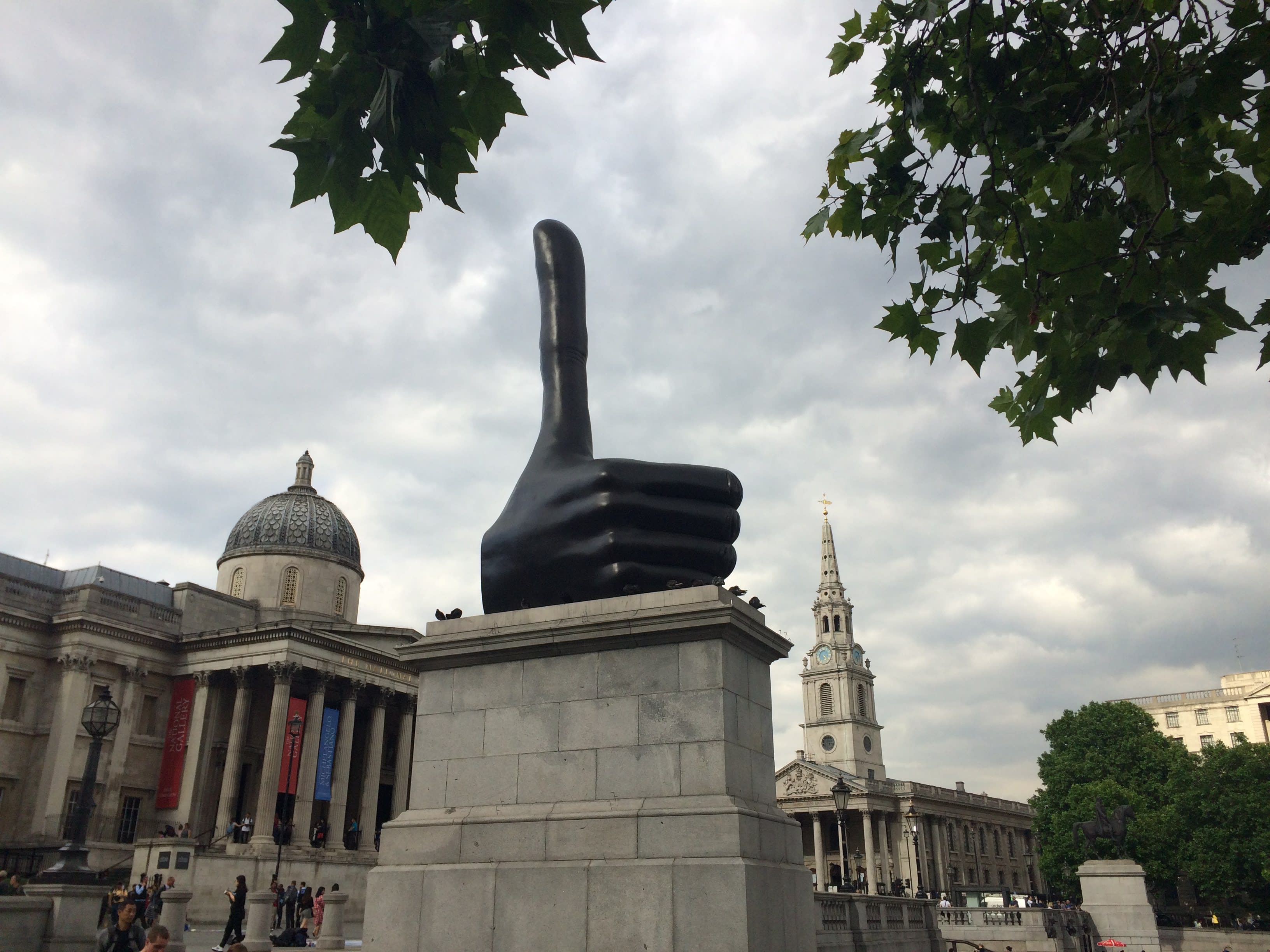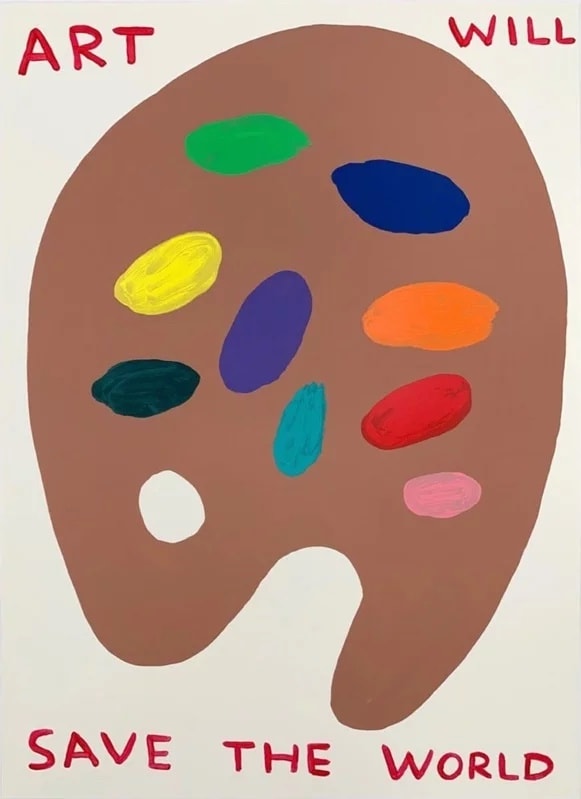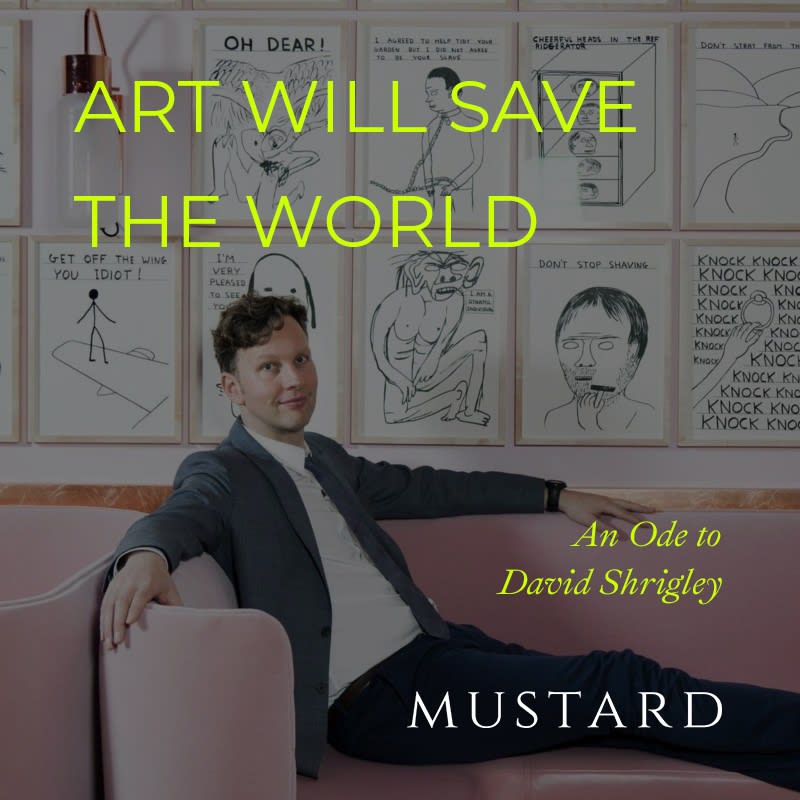For over three decades, Scottish artist David Shrigley (b. 1968) has captivated the contemporary art scene with his refreshing authenticity, deadpan humour, and biting satire. Renowned for his crude, cartoon-like paintings paired with witty handwritten text, Shrigley's versatility spans painting, sculpture, photography, animation, and music — establishing him as one of the most unpredictable and dynamic voices in contemporary art. As he once remarked, "the privilege of being an artist is that you can do whatever you want," a sentiment echoed in his diverse body of work.
In the 90s, Shrigley garnered early attention with his simple yet unsettling black and white drawings. These works, characterised by hasty lines and satirical undertones, offer poignant reflections on modern anxieties. Through his distinctive visual language and irreverent approach, Shrigley has always invited viewers to confront uncomfortable truths with dark humour and introspection. Critic Adrian Searle aptly mentioned that while Shrigley’s art was "very wrong and very bad in all sorts of ways. It is also ubiquitous and compelling."

Since those early drawings, Shrigley has ventured into other mediums, showcasing his brilliance across various artistic domains. Notable pieces include "I’m Dead" (2010), featuring a taxidermy dog signalling its demise, and the monumental "Really Good" (2016), a sculpture commissioned for the fourth plinth of Trafalgar Square, depicting an elongated thumbs-up cast in bronze. Throughout these ventures into other mediums, at the core of Shrigley’s output, lies a dedication to spontaneous drawing and mark-making, evident in his original paintings and works on paper. Bursting with absurd statements, critiques, and occasional profundities, these raw sketches offer humorous yet poignant insights into life's absurdities.

Shrigley's art is often characterised by recurring themes and motifs that delve into the human condition, exploring the everyday struggles of existence. Whether depicting anthropomorphic creatures grappling with their angst or offering sardonic commentary on societal norms, Shrigley's pieces provoke thought and amusement. A strong example of this is his piece "Art Will Save the World" (2019), featuring a rainbow of paint dots on an artist’s palette, beneath which the text reads "ART WILL SAVE THE WORLD." This simple statement encapsulates the artist's ability to playfully acknowledge the grandiosity and ridiculousness of artistic ambition.

In 2013, Shrigley's nomination for the Turner Prize marked a milestone in his career, followed by the placement of his public sculptures in prestigious locations like New York’s Central Park and Trafalgar Square. With his acclaim growing, Shrigley's drawings continue to resonate with audiences, offering a whimsical yet incisive commentaries.
The enduring demand for Shrigley’s works reflects his boundary-blurring approach. As the art world faces on-going challenges, Shrigley's satirical works have shown to be a stable investment.

